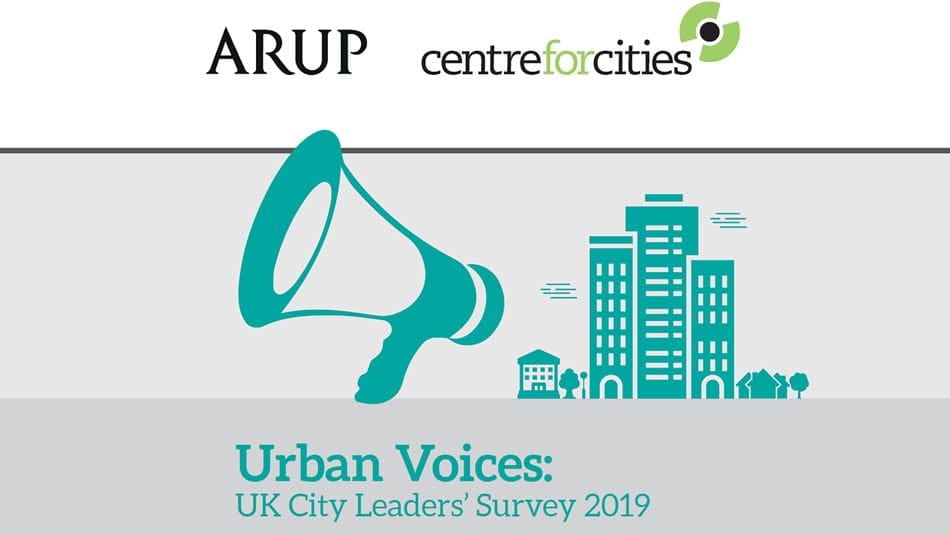For the second year running, Arup and Centre for Cities have conducted a survey asking the elected leaders of the UK’s largest urban areas about their ambitions and challenges on issues such as transport, housing and the climate emergency.
In a sign that the ‘Greta Effect’ has cut through the political agenda, half of city council leaders and directly elected mayors contributing to the survey cited tackling climate change as a top priority – rising dramatically from just 5% last year. But they say more support from national government is needed to help them act.
In a message to national politicians fighting the General Election, more than two thirds (69%) of council leaders and directly elected mayors blamed insufficient funding as a barrier to action, while almost half (41%) cited deficiencies in national government as an obstacle.
Concern about the climate crisis has also affected their transport priorities. An overwhelming majority (75%) are encouraging the public to ditch cars in favour of cycling and walking, and over half are transitioning to more environmentally friendly council-owned vehicles. Encouraging bus use is also high on their agenda.
When it came to money, eight in ten (81%) urban political leaders would be willing to spend significant extra capital on combating the climate emergency – if it were provided by central government. Even more (94%) of them would allocate extra money from Government to public transport investment, further reducing car dependency in cities.
Not enough interest in cities from Government
Climate change is not the only issue where urban political leaders feel Government support could be more forthcoming.
Most (62%) urban council leaders and directly elected mayors rate the support that Government gives to tackling city-specific issues as unsatisfactory. Less than one in ten of them think the Government’s support is good.
Worries about post-Brexit access to workers
Six in ten (59%) urban council leaders and directly elected mayors expect Brexit to negatively affect employers’ ability to hire international workers. More broadly, 41% of them expect it to harm their city’s international reputation.
Over half (52%) also expect Brexit to negatively affect their city’s ability to access international investment. An existing lack of investment is already cited by many of them (41%) as the main factor limiting inclusive growth.
…But political leaders still expect job numbers to rise
Council leaders and directly elected mayors are more optimistic about job numbers in their cities. Most expect the number of jobs to rise, regardless of skill level, and they expect the number of high-skilled jobs to increase most of all.
Centre for Cities is using the findings to remind national politicians and the next Government of the importance of the people living and working in cities to the national economy.
